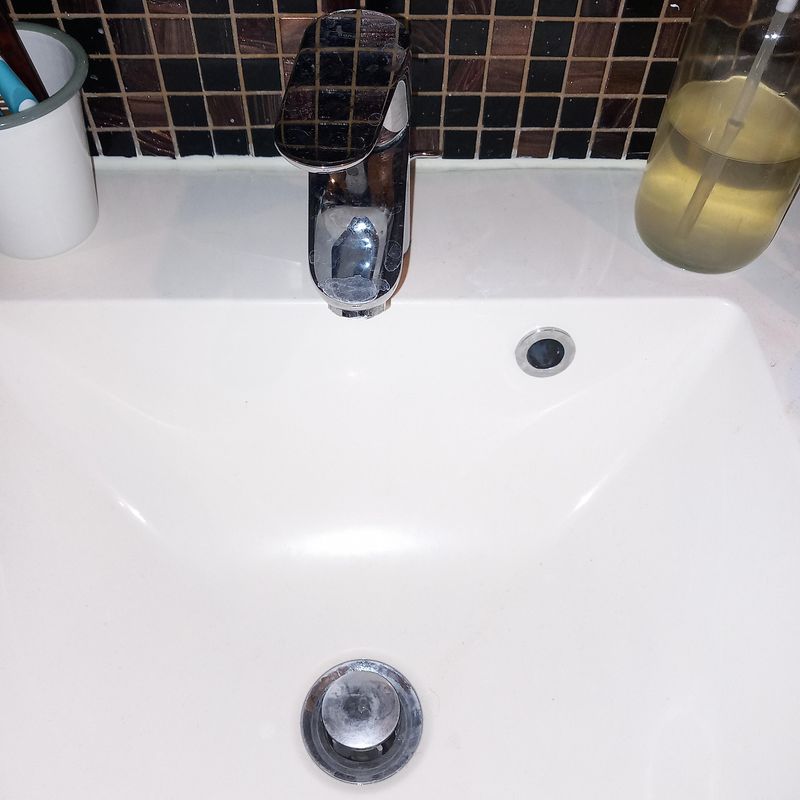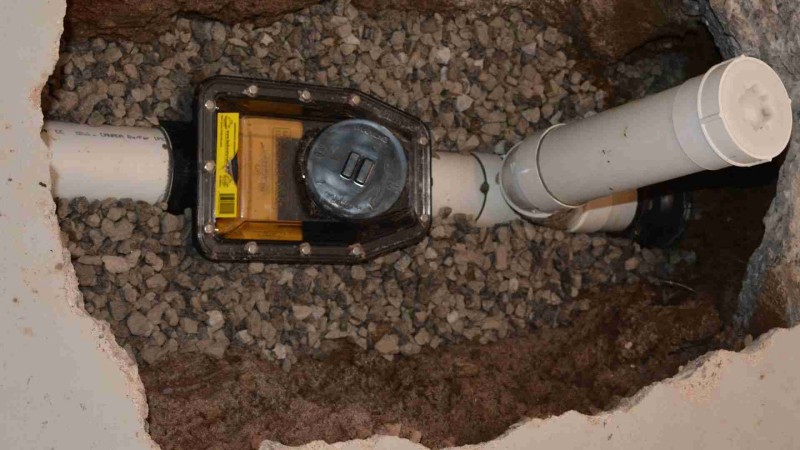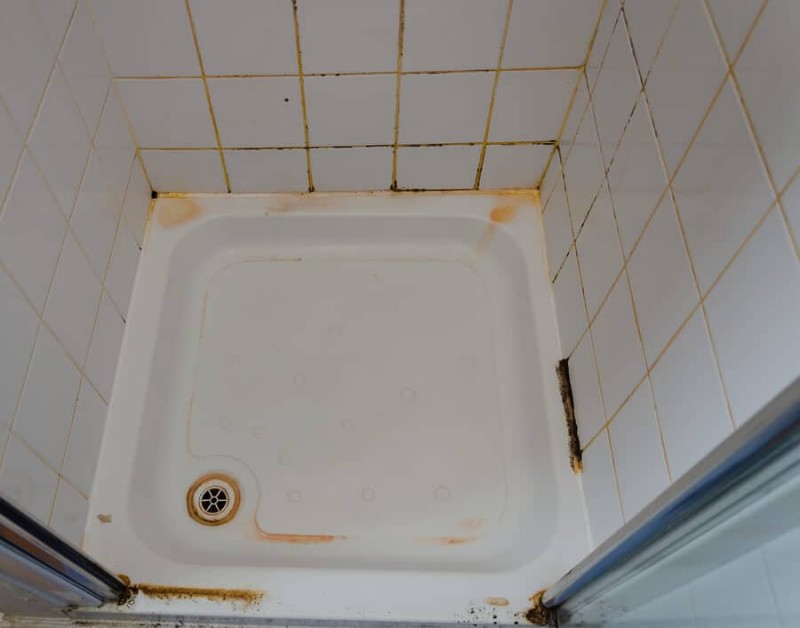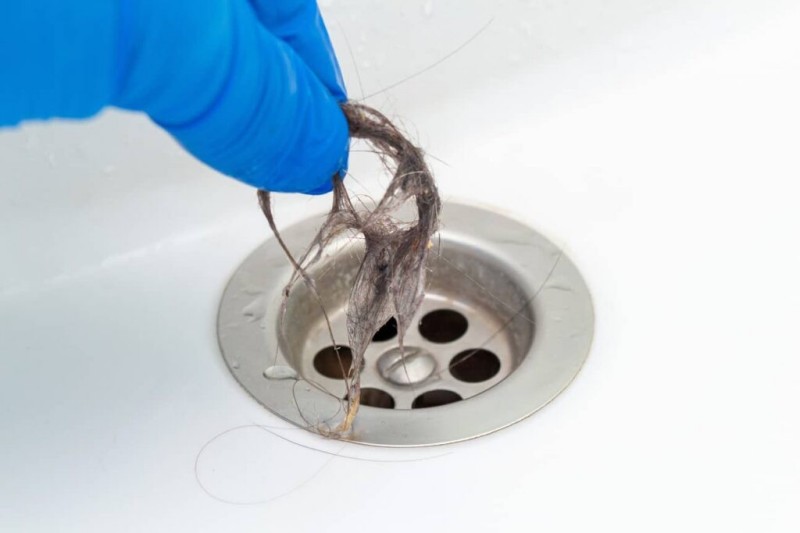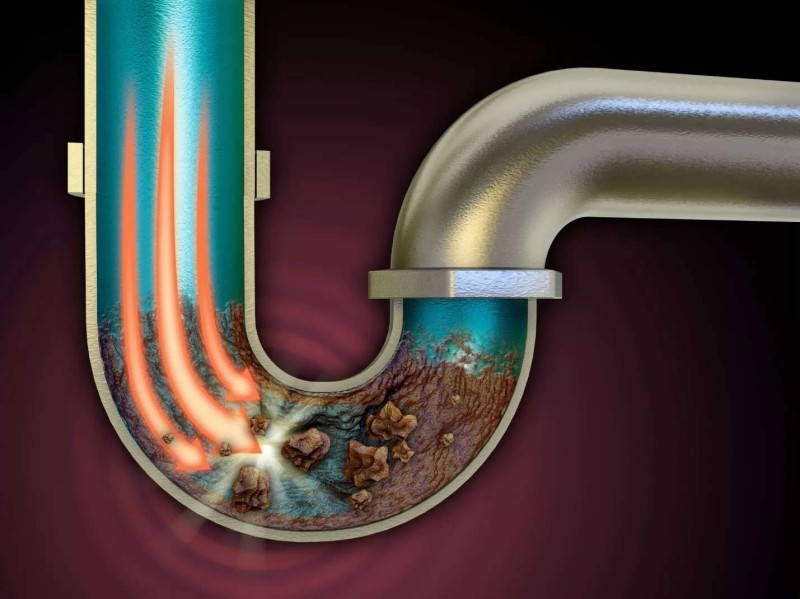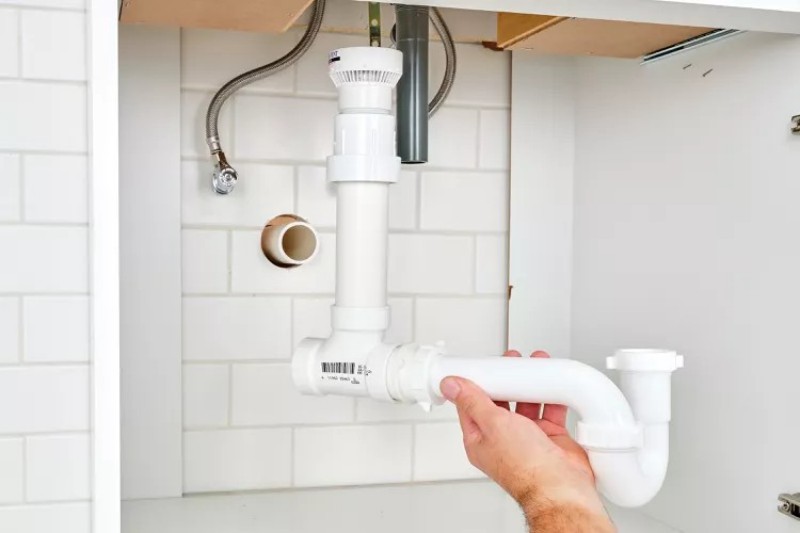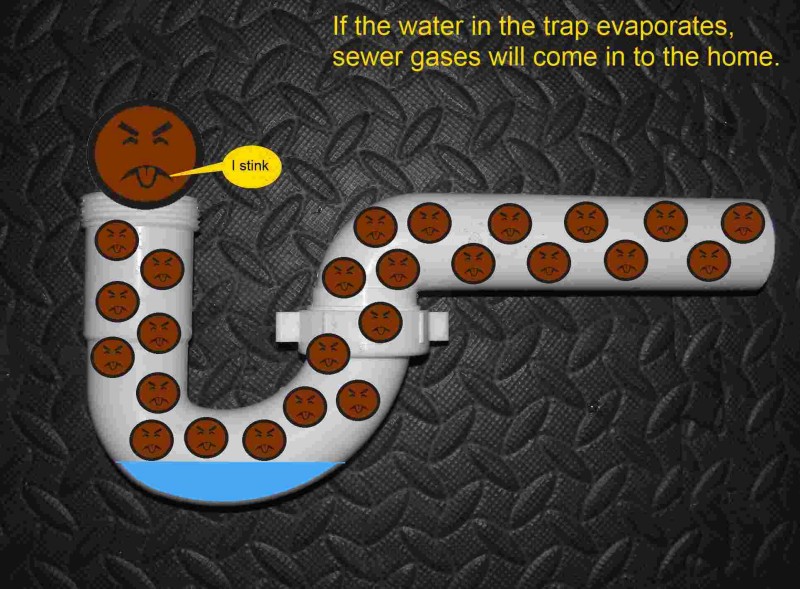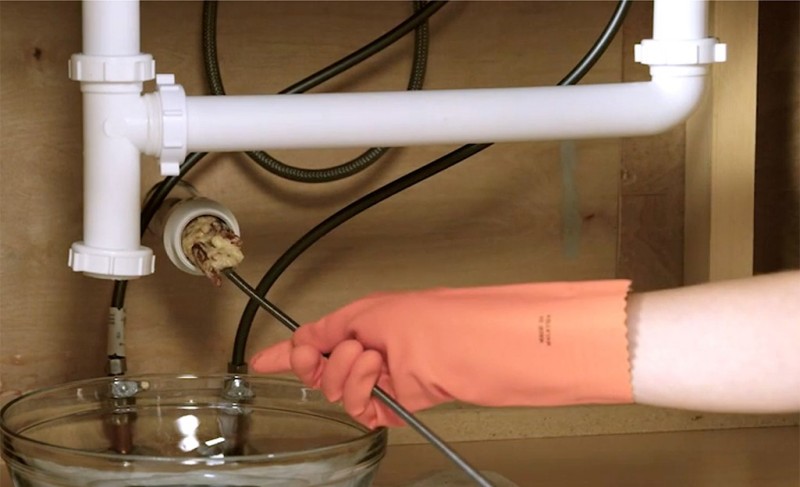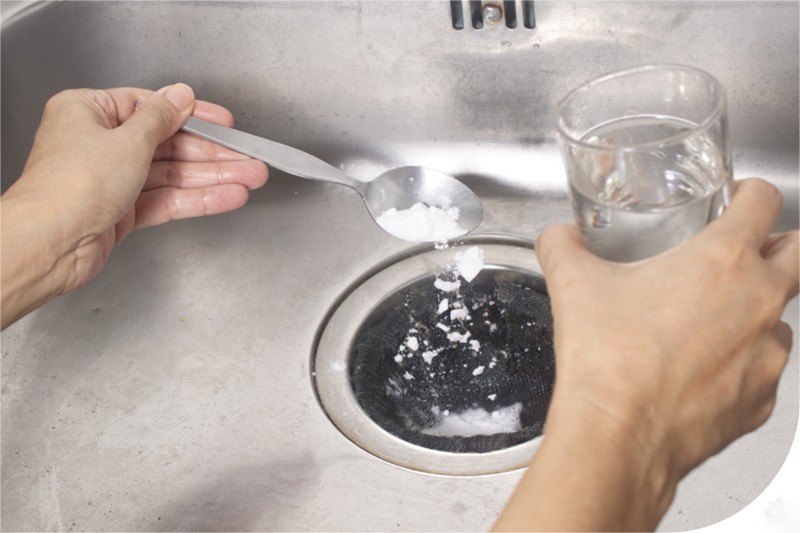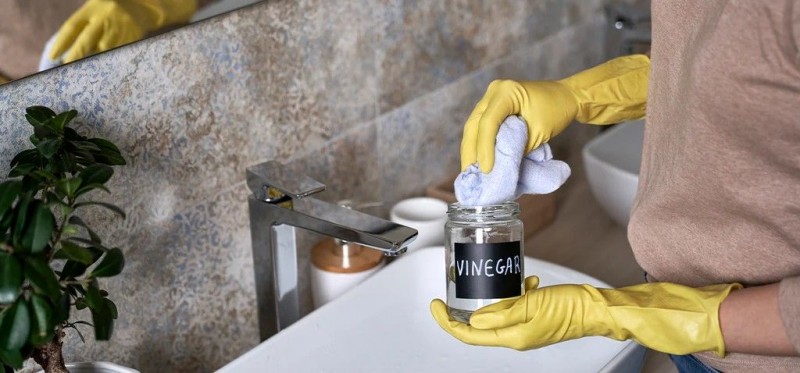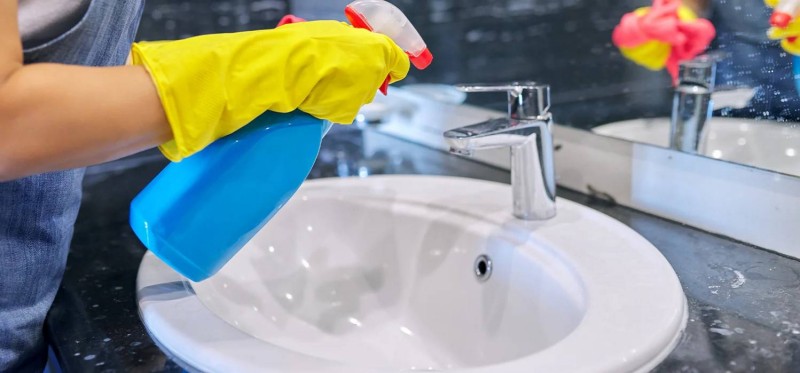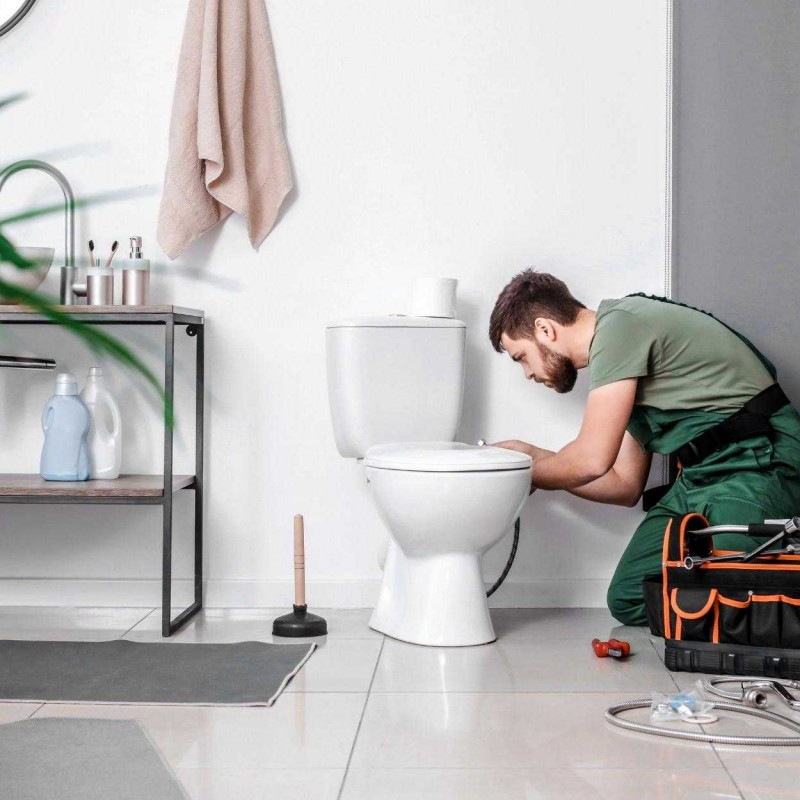 English
English
Jabra Sanitary is a sanitaryware supplier offering toilets, sinks, faucets, bathtubs, etc., at competitive prices. If you're a distributor, wholesaler, or project contractor, get a quote today!
 $23.9 Limited-time Offer
$23.9 Limited-time Offer Consignment Policy
Consignment Policy 20 Years of Experience
20 Years of Experience
Dealing with a bad smell in the bathroom sink can be frustrating, especially when it lingers despite regular cleaning. This common issue often stems from plumbing, drainage blockages, or even bacteria and mildew buildup.
Understanding the causes can help you address and eliminate the odor effectively, leaving your bathroom fresh and inviting. In this article, we'll discuss the main causes behind a bad smell in your bathroom sink and practical solutions to help get rid of smelly drains once and for all.
Table of Contents
Causes of Smells from Your Bathroom Sink
How to Stop Your Bathroom Sink Smelling Like a Sewer
How Can I Prevent a Smelly Drain
When to Call a Professional Plumber
Conclusion
Causes of Smells from Your Bathroom Sink
A bad odor coming from your bathroom sink is often due to a few common issues related to drainage, ventilation, and cleanliness.
Understanding the root cause can help you apply the right solution, whether it's unclogging, increasing ventilation, or simply cleaning. Below are common causes of sink odors in bathrooms that can cause a musty smell under the bathroom sink with no leak in sight.
1. Built-Up Bacteria
Bacteria buildup is one of the most common reasons for a bad smell in the bathroom sink. As water and soap travel down the pipes, they often leave residues that create an ideal environment for bacteria to thrive.
Over time, this accumulation can produce foul odors that intensify if the drain isn't regularly cleaned. Bacteria are a common cause of bathroom sink odor and can make the water in the bathroom sink smell unpleasant if untreated.
2. Mold or Mildew Growth
Mold and mildew thrive in humid environments, making bathroom sinks a perfect breeding ground, especially if ventilation is poor. The dark, damp environment beneath the sink can encourage mold growth, producing a musty smell.
Mold spores and mildew not only release odors but can also be harmful to your health, which is why it's essential to manage their growth. Ensuring good ventilation and regular basin cleaning are key steps to prevent these issues, especially when you encounter a bad smell from the bathroom sink drain.
3. Hair and Soap Buildup
Hair and soap are common culprits when it comes to smelly drains. As hair collects in the sink's drainage system, it combines with soap residue, creating clogs and slowing down water flow.
This mix of organic and chemical materials can become stagnant, causing unpleasant smells to waft up from the drain. Cleaning the drain regularly and using drain catchers to prevent hair from entering the pipes can greatly reduce the risk of this buildup, especially if your bathroom sink water smells bad.
4. Water Heater Problems
Sometimes, the source of a bad smell in your bathroom sink can be traced back to the water heater. When bacteria build up in the heater, particularly if the temperature is set too low, it can result in foul-smelling hot water that flows into your sink.
Additionally, sediment buildup in the heater can cause rotten egg-like odors in your water, affecting your bathroom sink. Regularly flushing the water heater and setting it to at least 130°F can help prevent bacteria and sediment buildup, ensuring your water remains odor-free.
5. Clogged Sewer Line
A clogged sewer line can cause a serious odor problem in your bathroom sink. When the sewer line is blocked, it disrupts the natural flow of waste and can cause sewage odors to back up into your sink.
Indicators of a clogged sewer line include multiple drains in the home draining slowly or bubbling sounds when you run water. If you suspect a sewer line blockage, addressing it promptly is essential, as this can escalate into more severe plumbing issues and cause a persistent smell from the bathroom sink.
6. Ventilation Issues
Poor ventilation is another common cause of persistent bathroom odors. Bathrooms that don't have proper ventilation tend to trap humidity, leading to a damp environment that encourages mildew growth and prevents smells from dissipating.
Without a fan or window, odors from your sink drain may linger in the air longer. Installing a bathroom fan or keeping a window open can help circulate air, reduce humidity, and minimize musty smells, especially if you notice a bad smell coming from the bathroom sink drain.
8. A Dried-Out P-Trap
The P-trap, a U-shaped pipe beneath the sink, is designed to trap a small amount of water. This water acts as a barrier, preventing sewer gases from rising through the drain.
If the sink hasn't been used for a while, the water in the P-trap can evaporate, leaving the trap dry and allowing sewer odors to escape into the bathroom.
Simply running water down the sink for a few seconds can refill the P-trap and stop the smell. This simple solution can help reduce bathroom sink odor significantly.
9. Sink Is Not Draining Properly
If your sink is not draining properly, it can lead to stagnant water that gives off a bad smell.
Slow-draining sinks allow bacteria and other residues to accumulate, creating the perfect environment for foul odors. This issue could be due to a partial blockage or buildup within the pipes.
Ensuring the sink drains properly by regularly cleaning and inspecting the pipes can prevent this type of bathroom sink odor.
How to Stop Your Bathroom Sink Smelling Like a Sewer
Once you understand the cause of the odor, getting rid of the smell can be straightforward. Using basic cleaning methods, household items, or quick plumbing fixes can often solve the issue.
Here are some effective methods to stop your sink from smelling like a sewer and keep your bathroom sink drain smelling fresh.
1. Clean Out Your Sink
Regularly cleaning your bathroom sink, just like cleaning a kitchen sink, is essential for keeping bacteria and buildup at bay. Start by removing any visible debris from the sink's surface and drain area.
Then, use a brush or an old toothbrush to scrub around the drain and any hard-to-reach spots. For deeper cleaning, remove the drain stopper to access trapped hair or soap buildup.
This process can help eliminate the source of bad smells and keep your sink fresh, helping to get rid of smelly drains in your bathroom.
2. Use Hot Water to Clear Blockages
Hot water can be effective in clearing light blockages in the drain. Simply pour a kettle of boiling water slowly down the sink, allowing it to dissolve soap scum, oils, and other residues lining the pipes.
This method can be particularly helpful if you notice slow drainage or mild odors, as it helps break down materials before they form stubborn clogs. Repeat this process weekly to keep your drain clear and avoid the musty smell under the bathroom sink.
3. Baking Soda and Vinegar
Baking soda and vinegar are powerful natural cleaners that can effectively neutralize odors and break down buildup in your sink.
Start by pouring about half a cup of baking soda down the drain, followed by half a cup of vinegar. Allow the mixture to fizz and work through the pipe for 15–20 minutes, then flush it with hot water.
This combination helps eliminate bacteria and freshens your sink drain without harsh chemicals, an excellent method to tackle water in the bathroom sink that stinks.
4. Check the Overflow Pipe
The overflow pipe, located near the top edge of the sink bowl, can collect grime and bacteria over time, leading to unpleasant odors.
To clean the overflow pipe, pour a mixture of warm water and a mild cleaning agent into it, using a funnel to help it reach the area. You can also use a flexible brush to scrub the inside of the overflow pipe for a thorough clean, helping to eliminate odor-causing residue that may be causing the bathroom sink drain to stink.
5. Repair Ventilation Problems
If your bathroom has poor ventilation, it's essential to address this issue to prevent ongoing odors. Installing an exhaust fan or keeping a window open allows fresh air to circulate, reducing humidity and preventing the buildup of musty smells.
In bathrooms without windows, consider using a dehumidifier to keep moisture levels low. Proper ventilation not only prevents bad odors but also helps reduce the risk of mold and mildew growth, especially if the bathroom sink stinks when running water.
6. Add Water to Your P-Trap
If your bathroom sink hasn't been used in a while, the P-trap may have dried out, allowing sewer gases to escape. To clean p trap smell, simply pour water down the sink to refill the P-trap and recreate the water seal.
This step can effectively block odors from coming up through the drain. For sinks that aren't frequently used, periodically running water for a few seconds will help keep the P-trap from drying out, thus preventing a bad smell from the bathroom sink.
How Can I Prevent a Smelly Drain
Consistent cleaning and simple preventative measures can help maintain a fresh, odor-free bathroom.
Here are some regular practices to stop smells from developing in the first place, which can save you the hassle of figuring out why the bathroom sink smells in the future.
1. Clean the Drain Weekly
Routine drain cleaning is essential to prevent the buildup of hair, soap, and bacteria. You can use a natural solution, such as baking soda and vinegar, or a mild drain cleaner weekly to clear away residues that cause odors.
Consistent cleaning prevents materials from accumulating and keeps your bathroom smelling fresh, especially if your sink smells bad in the bathroom often.
2. Keep the Sink Clean Daily
Wiping down the sink including the sink faucets each day can go a long way in keeping odors away. Remove any soap scum, toothpaste residue, or standing water to prevent bacteria and mold from forming.
Using a non-toxic bathroom cleaner regularly will help maintain the cleanliness of the sink area and keep bad smells in check.
Daily cleaning also helps prevent the need to troubleshoot bathroom sink water smells in the long run.
3. Flush Water Down the Pipes Often
Running water down the drain regularly, especially in sinks that aren't frequently used, helps flush out small particles and prevents the P-trap from drying out.
This simple practice helps maintain the water barrier that keeps sewer gases at bay, ensuring that your sink doesn't start emitting unpleasant odors and preventing bathroom sink odor before it starts.
4. Check the U-Bend
The U-bend, or the curved pipe beneath the sink, can trap debris over time. Hair, soap, and other residues collect here and can cause bad smells if not cleaned out.
Periodically inspect and clean the U-bend to keep water flowing freely and eliminate any buildup that might lead to odors, ensuring there is no bad smell coming from the bathroom sink.
5. Let Towels and Bath Mats Dry Properly
Damp towels and bath mats can hold onto moisture, creating an environment conducive to mildew and unpleasant smells in your bathroom.
Make sure to hang towels and mats to dry fully after each use, and wash them frequently to prevent odors from developing. This simple habit can help maintain a fresh bathroom environment and prevent the smell from the bathroom sink from becoming a regular issue.
6. Use Scented Products
While scented products alone don't remove the source of odors, they can provide a pleasant scent that enhances the bathroom's freshness.
How to make the bathroom sink smell better? Consider using scented drain tablets, essential oils, or air fresheners specifically designed for bathrooms. Be cautious not to overuse them, as they mask rather than eliminate odors, but can still contribute to a pleasant environment.
7. Clean Your Shower Door or Curtain Regularly
Shower doors and curtains can accumulate mildew, especially in humid bathrooms. Cleaning these surfaces regularly prevents mildew from spreading and contributing to odors in your bathroom.
Use a mild cleaner or vinegar solution to wipe down the door or wash the shower curtain to help reduce smells that might linger near your sink.
8. Burn Candles or Use Wall Plug-Ins
Natural candles or wall plug-ins can add a subtle fragrance to your bathroom, keeping it smelling fresh. Choose products with gentle, natural scents that neutralize odors without overpowering the space.
However, these should be used in combination with regular cleaning and maintenance to ensure a long-lasting, odor-free environment.
When to Call a Professional Plumber
Sometimes, persistent smells may indicate deeper plumbing or drainage issues that require a professional's expertise.
Here are some signs that it's time to contact a plumber.
1. Persistent Smells After Cleaning
If you've tried multiple cleaning solutions and the smell persists, it may indicate a deeper plumbing issue.
Persistent odors are often a sign that something within the pipes or sewer line requires attention beyond regular maintenance. A professional plumber can assess and address any underlying issues effectively.
2. Signs of Sewer Line Problems
Common signs of sewer line issues include water backing up in other drains, gurgling sounds, or strong odors throughout your bathroom.
These problems often stem from clogs or damage within the sewer line, which requires specialized tools and expertise to repair. Prompt attention from a plumber can help prevent further damage and restore normal function.
3. Mold and Mildew Growth in Hard-to-Reach Areas
If you notice mold or mildew in difficult-to-reach areas, or if mold growth keeps returning despite regular cleaning, it may be best to call a professional.
Plumbers can help identify hidden leaks and treat affected areas thoroughly, preventing mold from spreading further and eliminating a source of persistent bathroom odors.
Conclusion
Bad smells in your bathroom sink can be both frustrating and challenging to deal with. By identifying the source—whether it's a dry P-trap, poor ventilation, or debris in the drain—you can tackle the issue effectively.
Regular cleaning and maintenance are key to keeping your bathroom fresh and odor-free, while professional help can address more complex plumbing concerns. Following these tips will help you eliminate and prevent bad smells, ensuring a cleaner, more comfortable bathroom environment.







